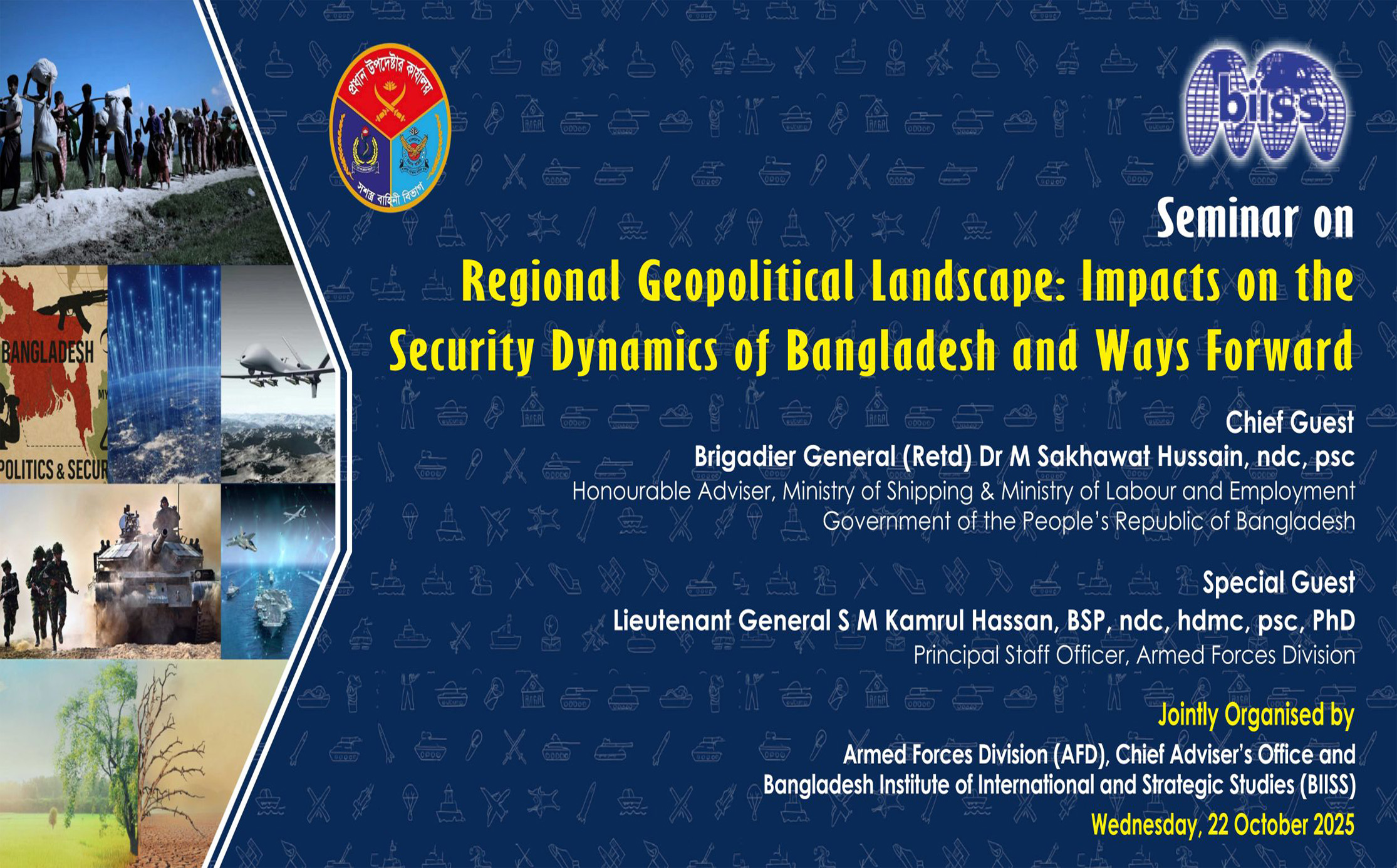Impacts on the Security Dynamics of Bangladesh and Ways Forward

The Armed Forces Division (AFD), Chief Adviser’s Office, and Bangladesh Institute of International and Strategic Studies (BIISS) jointly organized a seminar titled “Regional Geopolitical Landscape: Impacts on the Security Dynamics of Bangladesh and Ways Forward” on Wednesday, 22 October 2025, at the BIISS Auditorium.
Brigadier General (Retd) Dr M Sakhawat Hussain, ndc, psc, Honourable Adviser, Ministry of Shipping and Ministry of Labour and Employment, Government of the People’s Republic of Bangladesh, graced the event as the Chief Guest. Lieutenant General S M Kamrul Hassan, BSP, ndc, hdmc, psc, PhD, Principal Staff Officer, Armed Forces Division, attended as the Special Guest, while Professor Dr ASM Ali Ashraf, Chairman, Department of International Relations, and Director, Centre for Genocide Studies, University of Dhaka, delivered the keynote address.
The seminar brought together distinguished scholars, policymakers, diplomats, and defence officials to discuss and analyse the evolving global and regional geopolitical landscape and its implications for Bangladesh’s security dynamics. Participants also explored potential strategies and policy directions for Bangladesh in navigating the shifting regional and international order.
The event provided an engaging platform for the exchange of ideas and perspectives, contributing to a deeper understanding of contemporary security challenges and opportunities for Bangladesh in the changing geopolitical environment.